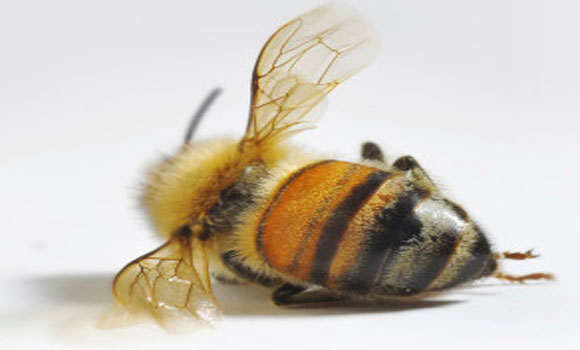People of the World ! ...we gotta STOP this madness !

― Albert Einstein


“If the bee disappeared off the face of the earth, man would only have four years left to live.”
― Albert Einstein
More than 150 Bee Colonies Wiped Out in Oregon From Pesticides
June 24, 2013You wouldn’t celebrate Arbor Day by cutting down a forest, but one landscaping business in Wilsonville, Oregon marked National Pollinator Week in the same sort of ironic fashion—by killing off an estimated 25,000 bees in the small Oregon town.
Elizabeth Renter
According to the Wilsonville Spokesman,
shoppers at an area Target began reporting mass amounts of dead bees in
the store’s parking lot, specifically around the European linden trees
that dotted the area. Portland-based Xerces Society for Invertebrate
Conservation was called in.

“After several calls at the office, I
visited the Target store in Wilsonville and found a parking lot full of
dead bumblebees underneath blooming European linden trees,” said Rich
Hatfield, a conservation biologist with the organization. “They were
literally falling out of the trees. To our knowledge this is one of the largest documented bumblebee deaths in the Western U.S. It was heartbreaking to watch.”
Oregon agriculture depends on bees, and
specifically the bumblebee population, to pollinate their crops. The
thousands lost in Wilsonville could have a serious effect on surrounding
farms. Even the EU has gone and enacted a ban on pesticides linked to
bee deaths, while the USDA has welcomed them with open arms.
“All the trees had dead and dying
insects,” said a local resident who initially called The Xerces Society,
known for their work in bee conservation. “I parked by one of the trees
and there were just masses of them. I was just disturbed.”
The Oregon Department of Agriculture
was called in and collected samples of the bees and the surrounding
vegetation. According to the agency, the trees had been treated with
something known as dinotefuran, an insecticide from Safari. On the label, the pesticide specifically states not to use on trees that are in bloom, as the linden trees were.
Twenty-five thousand bumblebees is a rough estimate as officials believe the initial kill had been cleaned up. They surmise the kill represents the loss of upwards of 150 bee colonies, in addition to honeybees, lady bird beetles, and other insects.
“We need to spotlight this as a real-world lesson in the harm these toxic chemicals are causing to beneficial insects,” said Scott
Hoffman Black, executive director of the Xerces Society. “It would be
especially alarming to find out whether pesticides are the cause in this
case because the linden trees are not even an agricultural crop. Any
spraying that happened would have been done for purely cosmetic reasons.”
Bees play a crucial role in our ecosystem, responsible for spreading pollen from plant to plant, encouraging fruit growth and production. To annihilate 150 bee colonies for aesthetics is truly an alarming incident.



No comments:
Post a Comment